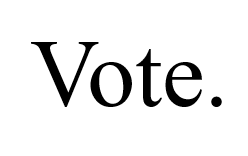On the 12th of January 2020, China shared the genetic sequence of Covid-19 after they discovered that a number of clusters of pneumonia in the country were actually a new form of highly-infectious coronavirus. This was the start of one of the most severe global pandemics in living memory.
The virus is concluded to have been passed to humans through contact with or consumption of animals like pangolins and bats which can carry coronavirus strains. The transferral to humans likely occurred at a ‘wet market’ in Wuhan, China. These markets, which trade live animals, are common in east Asia, leading to demonisation of Asian culture for being the origin of the virus.
What followed was a spike in xenophobia, sometimes aggressive, against people of Asian descent across the world. In the UK, more than 260 offences against Chinese people were recorded in the first three months of the year, nearly three times the average of the past two years, with undoubtedly many more being committed without report. Alarmingly, the problem seems to have been particularly prevalent among student populations.
In early March, a Chinese PhD student at the University of Glasgow was assaulted and his clothes were ripped as three perpetrators shouted ‘coronavirus’. Around the same time, Jonathan Mok, a UCL law student from Singapore was punched multiple times on London’s Oxford Street, leaving him with significant facial injuries, after attackers told him ‘I don’t want your coronavirus’.
Jeremy Wu, a student nurse working for the NHS during the pandemic, has said he’s faced abuse from patients and colleagues alike, with one co-worker telling him, ‘why not go back to your country with your virus?.’ He went on to say, ‘sooner or later people will realise it is ridiculous to relate a pandemic virus to a certain group of people, like HIV towards the LGBT community in the 80s.’ This kind of misinformed xenophobia does seem distinctly out-dated for our modern society, and exposes a deep-rooted racial ignorance which needs to be eliminated.
The national head of police action against hate crime, Mark Hamilton, made a statement in response to the spike in intolerance, saying that ‘no one is responsible for the outbreak and everyone has a right to be protected from targeted abuse’.
It’s a different story in the USA, as President Trump’s rhetoric seemingly encourages xenophobia by consistently referring to Covid-19 as the ‘Chinese virus’ more than twenty times in official addresses during March alone. When Trump faced accusations of racism concerning the term, he stated that ‘It’s not racist at all. No, it’s not at all. [Covid-19 is] from China. That’s why. It comes from China. I want to be accurate’, disregarding the possibility that his words could have a negative effect on how Asian Americans would be treated by his supporters.
All forms of xenophobia, whether through commercial boycotting of Asian businesses, physical attacks, racial slurs, vicious comments or even cautionary looks in the street, can be hugely harmful to Asian minorities who hold no fault during the coronavirus pandemic, and can in fact deflect from effective prevention of the virus’ spread by placing an unfounded emphasis on racial origins. Indeed, Tedros Adhanom Ghebreyesus, the WHO director-general, has said that ‘stigma, to be honest, is more dangerous than the virus itself’.



